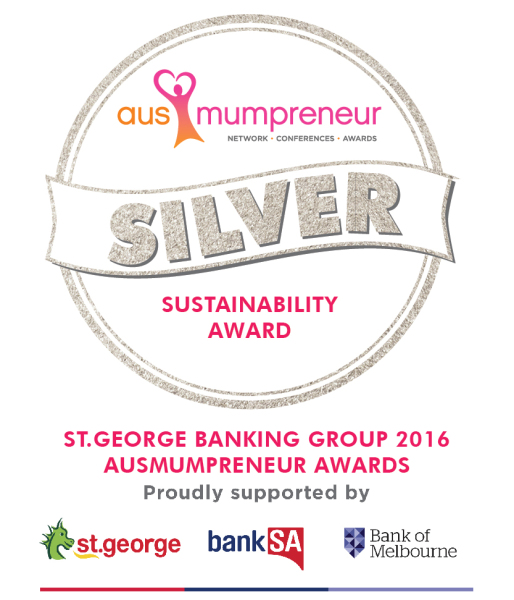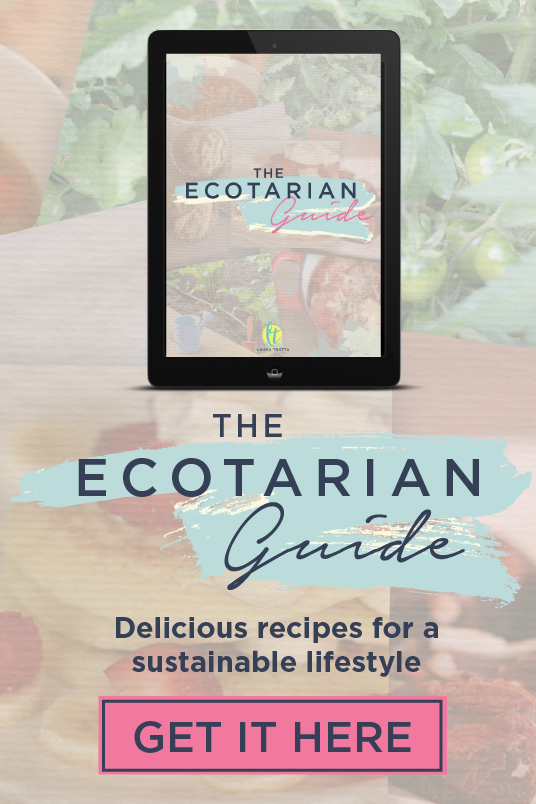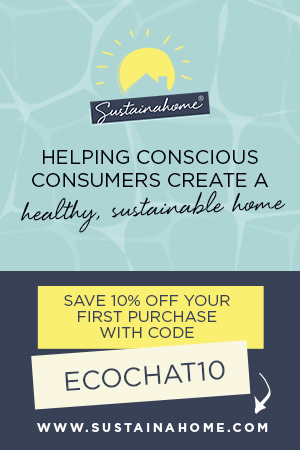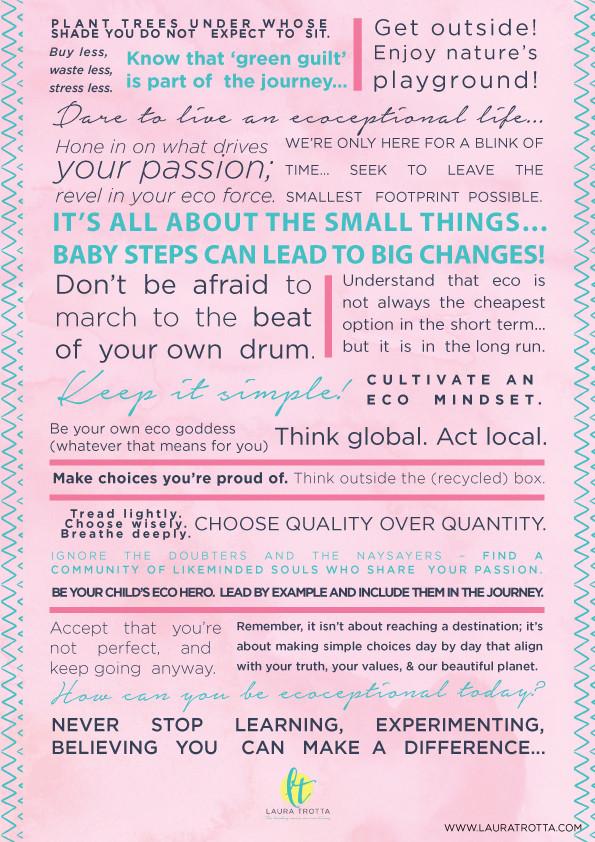I hope you enjoyed the previous two episodes where I chatted biodiversity and climate change with Professor Bill Laurance from James Cook University.
Discussing the big issues always helps to reignite our passion and remind us just why we’re on this journey together.
But I also realise that hearing the big issues can throw some of us into overwhelm. So today I want to share with you my thoughts on conservation and the four key areas we need to consider when striving to live more sustainably.
Podcast: Play in new window
It’s my hope and intention that sharing the four C’s of conservation will help bring you back to the basics during those times when you might feel a little overwhelmed on your eco journey.
1. Connection to Nature
Those who have a strong connection to nature are more likely to value and respect our natural environment. They’re also more likely to speak up and be an advocate for its protection.
Having a strong connection to nature is a win-win for the environment and you. From improving mood to strengthening your immunity, the list of benefits for our own physical and mental well-being when we spend more time unplugged in the great outdoors is vast.
So, get outdoors on a regular basis and deepen your connection with Mother Earth. Cultivate a bee-friendly garden, join your Local Landcare or Conservation Volunteers group, or take a regular stroll through your local forest or National Park (picking up any loose rubbish you find along the way).
If you have children, please make an effort to get them outdoors as much as you possibly can to foster their connection to nature and improve their well-being.
2. Consumption
The root cause of almost all environmental degradation is greed. And put simply, greed drives our rising levels of consumption.
The “consumption culture” in modern society is rife and it sadly is the norm to buy new stuff or buy cheap stuff that doesn’t last. Just buy and buy stuff ….. because …… well, who knows why? To make us feel successful, to show off to our friends, to fill a void in our lives or perhaps just because it’s “expected”.
It doesn’t help that the media and government encourage us to keep spending to keep the economy going, but we do need to remember that every single item we buy has an environmental footprint.
Every item we purchase has used natural resources like oil, water, and energy, in its production and transportation to market. At the end of its lifecycle, resources are again used to dispose, recycle or repurpose the item.
The age of the conscious consumer is now. If you’re not one already, become one.
I’m not saying not to buy anything new ever again. Just buy less, buy better quality from ethical producers, and look after your belongings so they last.
3. Compassion
Where greed is the root cause of most environmental degradation, compassion is at the heart of conservation.
Obviously this is compassion for our wildlife and natural resources, but it’s compassion for ourselves too.
While I believe being an advocate for the environment today is much easier than it was a few decades ago (people and governments are just that bit more aware), green is a long way off being mainstream and it can often be hard to buck the trends of general society.
For this reason I urge you to show yourself compassion when you don’t live up to your expectations. Every day is a new day and for the best results, look back and see how far you’ve come and look ahead and focus on where you want to go.
Sustainable living is indeed a journey so be kind to yourself so you can enjoy the ride!
4. Community
If you were trying to lose weight, what would you do? Go it alone and run the risk of your friends unintentionally sabotaging you with offers of biscuits and cake or wine and cheese nights? Or would you share what you’re trying to do and hang out more with your friends who eat healthier and are inclined to meet you for a walk or gym date, rather than coffee and cake?
Naturally, you’d find your tribe and hang out with them because that’s where you’ll have the best chance of success!
So if you’re wanting to lead a more sustainable, healthier and self-sufficient lifestyle, what will get you there faster?
That’s right, surrounding yourself with like-minded people on the same path, with many of them a few steps ahead of you guiding and supporting you along the way.
Community is such an important part of the conservation puzzle.
Whether it’s banding together with other like-minded people in your local community and swapping produce from your garden, or championing local conservation projects, or joining an online community like Self Sufficiency in the Suburbs, the road to sustainability is much more fun when it’s travelled with friends.
If you’re ready to be supported in your journey, doors will close to Self Sufficiency in the Suburbs for several months on Thursday 2nd February. Click here to join today!
What part of the conservation puzzle will you focus on in the near future? Connection to nature, consumption, compassion or community? Share below!
Podcast: Play in new window | Download
- Sustainable Home Design- factors to consider to maximise sustainability - July 28, 2022
- Advantage and Disadvantages of Tiny Houses - May 31, 2022
- How School Strike 4 Climate is Empowering Youth to Fight for Their Future - May 1, 2022

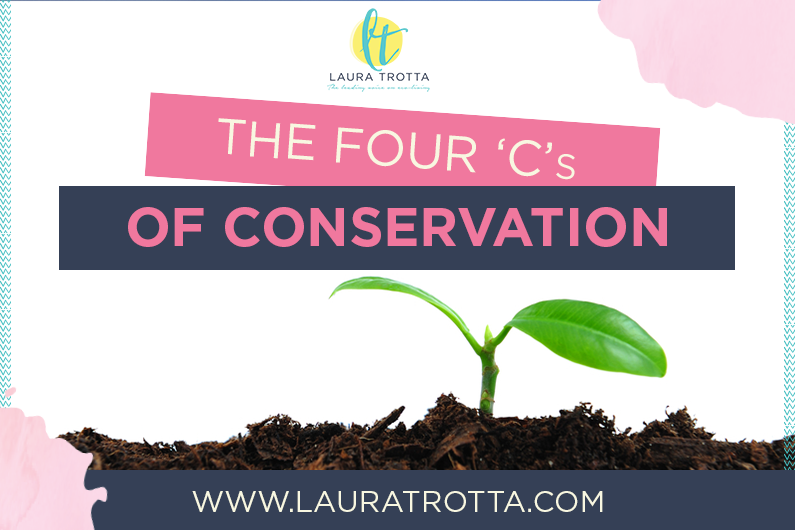

 Laura Trotta is one of Australia’s leading home sustainability experts. She has a Bachelor of Environmental Engineering, a Masters of Science (in Environmental Chemistry) and spent 11 years working as an environmental professional before creating her first online eco business, Sustainababy, in 2009. She has won numerous regional and national awards for her fresh and inspiring take on living an ‘ecoceptional’ life (including most recently winning the Brand South Australia Flinders University Education Award (2015) for the north-west region in SA and silver in the Eco-friendly category of the 2015 Ausmumpreneur Awards). With a regular segment on ABC Radio and with her work featured in publications like Nurture Parenting and My Child Magazine, Laura is an eco thought leader who’s not afraid to challenge the status quo. A passionate believer in addressing the small things to achieve big change, and protecting the planet in practical ways, Laura lives with her husband and two sons in outback South Australia.
Laura Trotta is one of Australia’s leading home sustainability experts. She has a Bachelor of Environmental Engineering, a Masters of Science (in Environmental Chemistry) and spent 11 years working as an environmental professional before creating her first online eco business, Sustainababy, in 2009. She has won numerous regional and national awards for her fresh and inspiring take on living an ‘ecoceptional’ life (including most recently winning the Brand South Australia Flinders University Education Award (2015) for the north-west region in SA and silver in the Eco-friendly category of the 2015 Ausmumpreneur Awards). With a regular segment on ABC Radio and with her work featured in publications like Nurture Parenting and My Child Magazine, Laura is an eco thought leader who’s not afraid to challenge the status quo. A passionate believer in addressing the small things to achieve big change, and protecting the planet in practical ways, Laura lives with her husband and two sons in outback South Australia. 